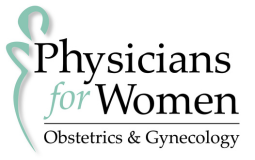It’s estimated that around 14% of women experience painful, heavy or abnormal periods. For many, the culprit is within the uterine cavity: endometrial polyps or submucosal fibroids. Longer periods, painful cramps, and heavy bleeding are signs you shouldn’t ignore, especially when there’s a solution for your misery.
Physicians for Women in Madison, Wisconsin consists of a team of experienced gynecologists. Abnormal uterine bleeding can often be resolved with a simple gynecological surgery called endometrial ablation.
When you should worry about heavy periods?
Extremely heavy or prolonged bleeding can really take the fun out of summer months. When you’re constantly worried about leaking through your tampon and/or maxi pads, it’s difficult to relax and enjoy the sun and sand. Cramps can also result in the need for NSAIDS (non-steroidal anti-inflammatory agents) like ibuprofen or naproxen that are harmful to your kidneys and stomach when used chronically.
The first step to solving the problem is finding out why you bleed so heavily. Many different conditions can lead to abnormally heavy flow. Some are serious, like certain types of cancer, clotting disorders, or pelvic infection, but these cases are fairly rare.
It’s more likely you have ovulation issues, polycystic ovary syndrome (PCOS), uterine fibroids (usually benign tumors), or endometrial polyps.
The lining of your uterus is called the endometrium. This uterine lining grows in response to normal cyclical hormonal influence and then sloughs in the event a fertilized egg does not implant within it. When you shed this lining and bleed, and your uterus contracts to force the blood and tissue out of your body.
When the lining is abnormally thick or there is pathology present within the cavity, e.g. endometrial polyps or submucosal fibroids, heavier bleeding and cramping often ensue. An endometrial ablation relieves heavy bleeding and associated cramping in the majority of properly selected patients.
Endometrial Ablation
During endometrial ablation, your doctor typically fulgurates the endometrium, or uterine lining down to a level that prevents new endometrium from growing. This can be done using a variety of methods, including laser, heat, radiofrequency, or freezing. The Novsure endometrial ablation is the most commonly performed type of endometrial ablation we perform and for good reason. It takes less than two minutes to fulgurate the endometrial lining using radiofrequency and patients typically have excellent success.
We’ll discuss which method is best for your situation at your consultation. Endometrial ablation is only performed if you don’t plan to have any more children, because the endometrium won’t regenerate itself. We recommend secure contraception after an ablation to protect against pregnancy. A pregnancy after an endometrial ablation is extremely high risk and can result in multiple obstetric problems: miscarriage, bleeding, preterm labor, placental implantation abnormalities and fetal growth restriction.
If you’re experiencing heavy periods, don’t hesitate to reach out to our office. You can schedule a visit by calling 608-218-4835, or book an appointment online.
